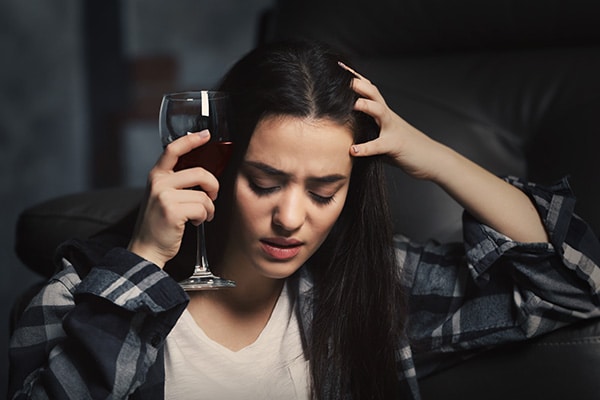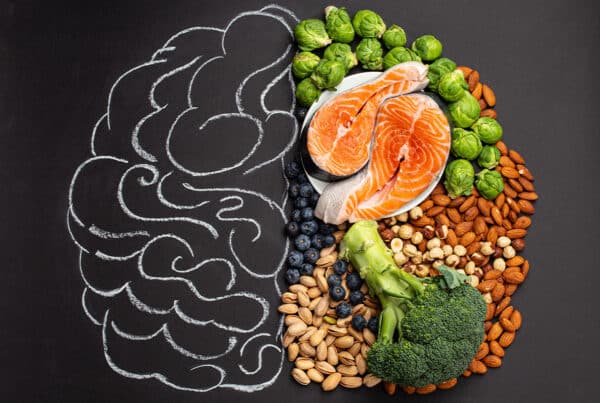Alcohol Use in the United States
In the United States, more than half of adults over the age of 18 regularly consume alcohol, according to the Centers for Disease Control and Prevention, and a 2012 survey conducted by the Substance Abuse and Mental Health Services Administration (SAMHSA) showed that about 70% of people over the age of 12 reported drinking alcohol in the prior 12 months.
While alcohol abuse doesn’t always rise to the level of alcoholism (or alcohol dependence), it is considered to be on the spectrum of Alcohol Use Disorder. According to the National Institute on Alcohol Abuse and Alcoholism (NIAAA), as of 2012, 6.2 percent of the adult population in the country had some kind of alcohol use disorder (AUD).
The severity of alcohol use disorder can vary, but common symptoms include:
- Drinking more or longer than intended
- Difficulty limiting the consumption of alcohol
- A strong urge or craving to drink
- Drinking interfering with other responsibilities
- An increased tolerance (the need for larger quantities of alcohol to feel the same effects)
What Is Anxiety?
The term “anxiety” is widely used today as a quick self-diagnosis, and people commonly use it to describe feelings of nervousness or apprehension about new experiences or social settings. However, actual Anxiety Disorders can be much more dangerous if left unaddressed, and they often act as a trigger for some people to self-medicate.
It’s important to note that anxiety is a broad term that covers several kinds of conditions and distinct anxiety disorders. These include:
Generalized anxiety disorder is a clinical disorder characterized by a constant level of stress in day-to-day life, even when nothing is actually going on. This can also lead to the development of phobias, and other irrational fears that relate back to whatever stressors caused the individual’s disorder, and sufferers of Generalized Anxiety Disorder often cite these feelings of fear and impending doom as their reason for turning to alcohol as self-medication.
As the name suggests, social anxiety disorder deals with chronic anxiety related to social settings. It’s not just feelings of shyness, like many tend to think, often leading suffers to experience physical sickness when they anticipate or are involved in a social setting or situation. Like other anxiety disorders, it is not uncommon for phobias to grow out of anxiety. Agoraphobia, the fear of being trapped far from home, can arise out of someone’s anxiety of being in social situations. They can begin imagining the horrible things that can be happening if they are unable to get home, everything from people hating them, to something potentially happening at home.
Individuals who suffer from panic disorders are prone to severe, recurring panic attacks. These attacks can lead to sweating, elevated heartrate, shaking, choking, shortness of breath, and a sense of impending doom. Intense panic attacks can even present like heart attacks.
In addition, other panic disorders such as Obsessive-Compulsive Disorder (OCD) and Post-Traumatic Stress Disorder (PTSD) are sometimes considered anxiety disorders. Phobias, while they can be connected to and trigger any of the disorders above, can also be their own independent disorder.
Self-Medicating Anxiety with Alcohol
Anxiety disorders primarily affect the central nervous system – raising the heart rate, increasing blood flow and generally putting the brain in overdrive. That’s why for patients with extreme anxiety, doctors commonly prescribe drugs like benzodiazepines, which are central nervous system depressants (and exhibit many of the same effects people experience under the influence of alcohol). However, in cases where patients can’t obtain a prescription for an anxiety disorder, many turn to alcohol to relieve their symptoms.
Unfortunately, what many people discover is that while alcohol may seem like it works at first, what little help it provides is usually temporary and damaging in the long run. At first, drinking can reduce fears, ease feelings of shyness, boost your mood and take your mind off your troubles, making you feel relaxed. But once you start drinking, your body can quickly build up a tolerance to the de-stressing effects of alcohol, which can make anxiety and stress even more difficult to cope with.
How does alcohol make anxiety worse?
Alcohol abuse (especially long-term abuse) can cause changes in the levels of serotonin and other neurotransmitters in the brain, which often makes anxiety more intense. Additionally, drinking excessive amounts of alcohol also has noticeable physical and mental consequences. Over time, consuming too much alcohol can lead to blackouts, memory loss, and even brain damage (especially when coupled with other health problems like liver damage) – and these issues often lead to more anxiety as people cope with the symptoms.
Intense feelings of anxiety are also a common symptom of alcohol withdrawal. Those who have consumed alcohol in large amounts for a long period of time who suddenly stop drinking often find that their anxiety can be aggravated by the side effects of alcohol withdrawal.
Other symptoms of alcohol withdrawal include:
- trembling hands
- sweating
- rapid heartbeat (above 100BPM)
- hallucinations
- nausea
- vomiting
- seizures
Alcohol Addiction and Anxiety as Co-Occurring Disorders
For a person with an anxiety disorder, it is easy for one drink to turn into three or five as they try to silence their mind. This self-medication of the underlying mental health issue makes them more likely to develop a dependence and eventually an addiction.
On the other hand, it is not uncommon for someone who has become addicted to alcohol to develop symptoms of anxiety. This can happen because of the effects that alcohol abuse can have on the person’s body, or from withdrawal if they go too long without a drink.
Treating Addiction to Alcoholism and Anxiety
For those suffering from alcohol addiction and anxiety, the good news is that both are treatable conditions. A lot of people view alcohol dependence as the more immediate danger, but without treating the underlying anxiety, patients are more likely to relapse. Finding a treatment provider that understands how to treat a co-occurring anxiety disorder can mean the difference between failure and long-term recovery.
Enterhealth offers an evidence-based alcohol and drug addiction treatment program that was created by a team of addiction experts. Based on the latest NIH research, this program is implemented by a staff of addiction-trained physicians, psychiatrists, nurses and therapists, beginning with a thorough medical and psychological assessment, which leads to a personalized treatment plan for each patient.
Enterhealth also specializes in treating drug and alcohol addiction with co-occurring issues like anxiety and panic disorder, otherwise known as dual-diagnosis treatment. The board-certified medical team at Enterhealth Ranch and Enterhealth Outpatient Center of Excellence, as well as our overall medical approach to recovery, enables us to uniquely address the diagnostic and treatment challenges of dual-addiction disorders.




